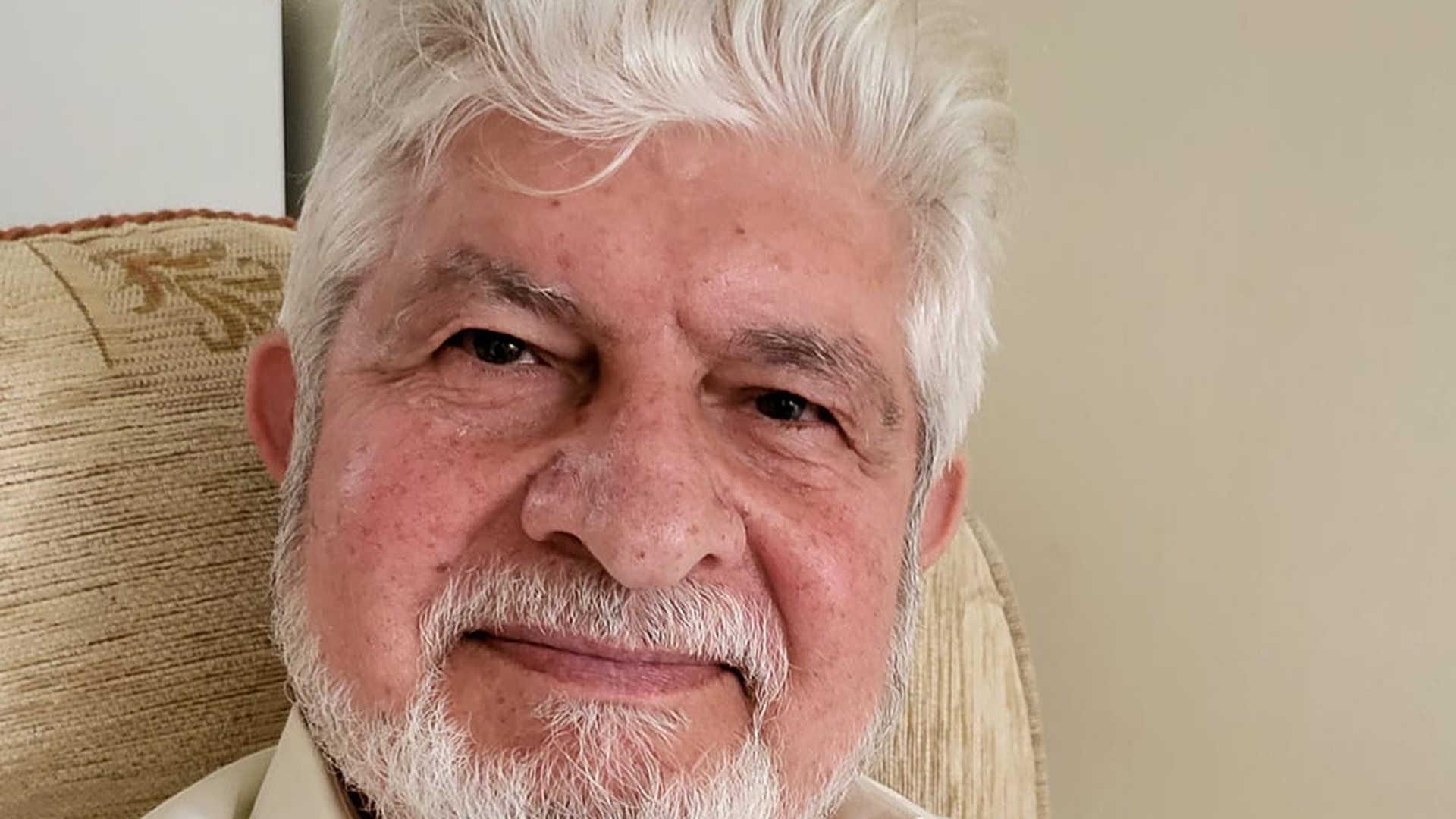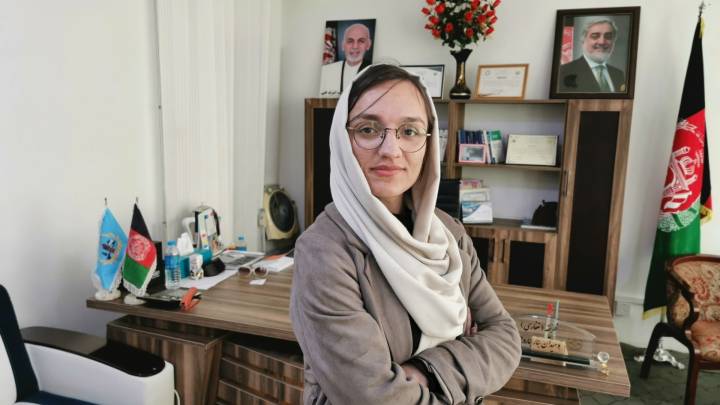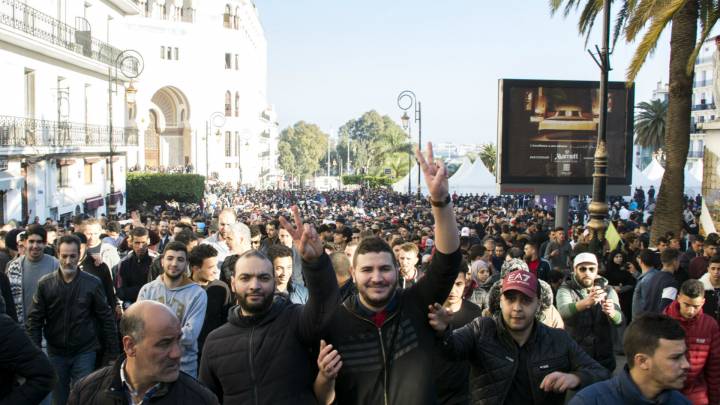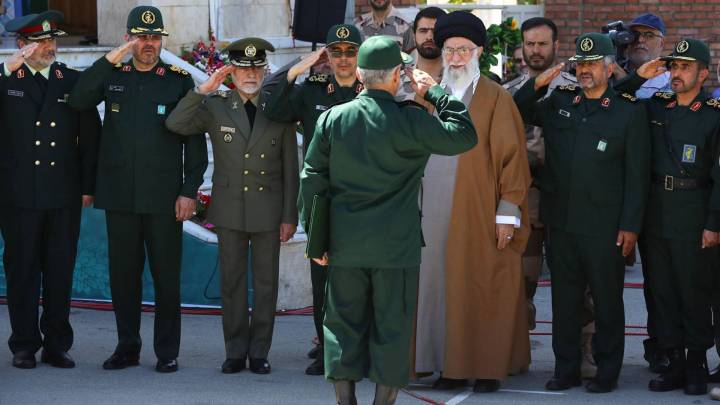The former communist Dawlat Waziri served the governments of Karzai, Ghani – and is now back in an Afghanistan under Taliban control. How is that possible?
As a security official in the previous government, Dawlat Waziri's return was followed by many reactions. Some consider his return as a betrayal to the national army that fought against the Taliban for the past twenty years. Some think a high-ranking military person can return to Afghanistan and be save, just because of his tribal affiliation. But is “being a Pashtun” enough of a safeguard for someone who has fought against the Taliban to return the Islamic Emirate of Afghanistan?
Waziri was born in 1954 in the Khogyani district of Nangarhar Province. Maybe his father had no idea when he named his little son Dawlat (which means Government) that this son would remain all his age in the military and governments of Afghanistan. Waziri, his last name, comes from the Waziri tribe, a branch of Pashtuns. After finishing elementary school at the age of 13, he entered the military school in Kabul, and further pursued his studies in the Soviet Union, where he received his Master in Moscow.
After his studies he joined the army as an officer and advanced to Major-General. A man of medium height, with piercing eyes, bushy eyebrows and strong tone of voice, he has been present on the political and military stage of Afghanistan for more than 55 of his 68 years of age. Although different regimes ruled Afghanistan during the years of Waziri’s life, he remained active under most of them, being directly involved in some political developments and witnessing others from the sidelines.
Major-General Dawlat Waziri had close and friendly relations with Hafizullah Amin, (killed on December 27th, 1979) the President of the self-proclaimed Khalq Democratic Republic of Afghanistan, as well as Shahnawaz Tanai, its Minister of Defense. Waziri served as Head of Office for Yaqoob Khan, the Chief of Staff at the Ministry of Defense under Amin’s regime.
Khan ended up among those poisoned, after Hafizullah Amin was assassinated on the onset of the Soviet invasion. Dawlat Waziri was later involved in Shahnawaz Tanai’s failed coup on March 7th, 1990 against Mohammad Najibullah, Afghanistan’s president from 1987 to 1992, leading 8,000 infantry soldiers of the Ferqa-8 platoon north of Kabul.
Waziri also had friendly relations with Gulbuddin Hekmatyar, the leader of the Hizb-e-Islami. Hekmatyar had fought against the communist Khalq Democratic Republic, in which Waziri was one of the members close to the core of power. During the civil war period in the 1990ies, as well as in part after 2001, Hizb-e-Islami, in collaboration with the Taliban, also took up arms against the republican government. In 2016, the Ghani government signed a peace treaty with Hizb-e-Islami.
In one of the media briefings at the Ministry of National Defense, Dawlat Waziri once was reporting on the operation of the government against terrorist groups. Waziri, spokesman of the Ministry at that time, talked about the government’s strategies against the Taliban: That the clashes between the warring parties would decrease in the winter, but would intensify come spring.
Like other journalists who raised their questions, I also asked why the operations of the National Army forces were not offensive-minded and aimed at defeating the enemy, but only defensive in nature. Why, I asked, are Taliban militants given a chance to recover during winters? In response to me, Waziri remained vague. That day, I did not receive a convincing answer from the spokesperson of the Ministry of National Defense. Even today I don’t have an answer as to how a well-armed and trained army could fail against the Taliban militants.
The prevailing opinion among the non-Pashtuns in Afghanistan is that the Pashtuns are willing to put aside their political beliefs to maintain their ethnic-based power and their dominance over the non-Pashtuns, regardless of which regime is in and how it comes to power. The only thing that matters, is that the power stays in the hands of the Pashtuns. I remember that Waziri on March 11th, 2021, in one of his interviews on the “Cactus” show on 1TV channel, was asked: Is the Emirate good or the Republic? “It doesn't matter,” he replied without hesitation. Only after the presenter emphasized the question, he answered: “Republic is good.”
After the return of Waziri to the Islamic Emirate, Hanif Rezaei, former spokesperson of Shahin 209 army base and one of the General’s close subordinates, wrote on his Facebook page: “I never saw the spirit of interacting with terrorists in him. But I admit that I was wrong about him. For him and his fellows, there is only one holy goal, and to achieve it, he is talking with demagogues. He proved that in any regime, he works for a specific purpose only. The hegemony of Pashtunism and the establishment of ethnic domination.”
Dawlat Waziri has strongly rejected the accusations of his betrayal. He wrote on his Twitter page: “Is living at home considered a sin?” Waziri, who used to call the Taliban terrorists in press conferences, now says that serving the people is not only through war; now it is time to try to improve the country.
The former president of Afghanistan, Hamid Karzai, had called the Taliban “Brothers”, while the Taliban were fighting against the national army every day, while they themselves called the Afghan national army “the dog of the occupying forces”. Ashraf Ghani also addressed Taliban leaders with the prefix “Sahib”, which is a sign of great respect in Afghanistan.
Cases like this and the return of individuals like Waziri, confirms the notion that Pashtun hegemony is on the rise in Afghanistan. Karzai and Ghani were bowing to the Taliban, but why is Waziri welcomed back into the fold? Waziri himself maybe just seeking peace at 68 years of age. But his return helps the Taliban to present his case to offer immunity for militants who have previously fought against the Taliban.




